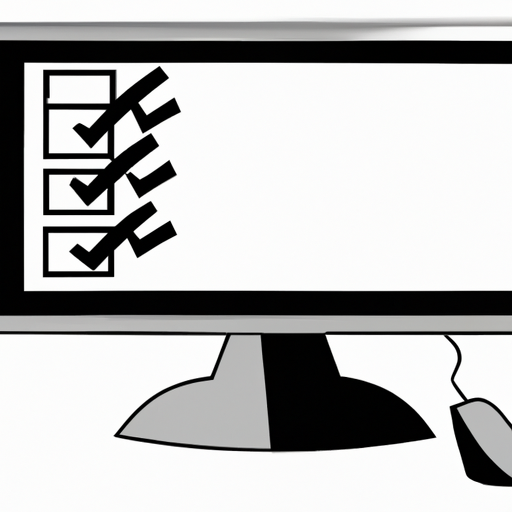In today's rapidly evolving digital landscape, software hosting has become a crucial aspect of business operations. As companies increasingly rely on software solutions to enhance productivity and streamline processes, it becomes imperative to ensure the effective management and utilization of these tools. One integral part of this process is software audit, a practice that evaluates the software systems in place to ensure compliance, efficiency, and security. In this article, we will delve into the importance of software audits for effective software hosting, the key components of understanding software audits, and the benefits they bring in ensuring seamless software hosting. By gaining a comprehensive understanding of software audits, businesses can optimize their software hosting practices, enhance performance, and mitigate risks.
1. The Importance of Software Audits for Effective Software Hosting
Software audits are an essential aspect of effective software hosting. They play a crucial role in ensuring that software applications and systems are operating efficiently and securely. Software audits involve a comprehensive review and evaluation of software licenses, usage, compliance, and overall performance.
One of the primary reasons why software audits are important for software hosting is to ensure compliance with licensing agreements. Software vendors typically impose specific terms and conditions for the use of their software. By conducting regular audits, organizations can verify that they are using the software within the parameters defined by the licensing agreements. This helps avoid legal issues and potential financial penalties that may arise from non-compliance.
Furthermore, software audits help organizations optimize their software usage. Through these audits, businesses can identify redundant or underutilized software licenses. By reallocating or eliminating such licenses, organizations can reduce costs and maximize their software investment. This optimization not only saves money but also ensures that valuable resources are allocated efficiently.
Software audits also enhance security for software hosting. In today's digital landscape, cyber threats pose a significant risk to organizations. By conducting audits, businesses can identify vulnerabilities, ensure that software patches and updates are up to date, and assess the overall security posture of their software systems. This proactive approach helps prevent potential breaches, data loss, and unauthorized access, safeguarding sensitive information and maintaining trust with customers.
Moreover, software audits provide valuable insights into the performance of software applications. By analyzing usage data and conducting performance assessments, organizations can identify bottlenecks, inefficiencies, and areas for improvement. These insights help in optimizing software performance, enhancing user experience, and ensuring that software hosting meets the needs and expectations of end-users.
In conclusion, software audits are of utmost importance for effective software hosting. They ensure compliance with licensing agreements, optimize software usage, enhance security, and improve overall software performance. By understanding the significance of software audits, organizations can proactively manage their software systems, reduce costs, mitigate risks, and provide a seamless software hosting experience.
2. Understanding Software Audit: A Key Component for Efficient Software Hosting
Understanding Software Audit: A Key Component for Efficient Software Hosting
In the fast-paced world of technology, software hosting has become an essential aspect of businesses across various industries. Whether it is in-house or cloud-based, hosting software allows companies to store and access data, applications, and resources remotely. With the increasing reliance on software hosting, it becomes crucial to ensure that the software being hosted is compliant, secure, and properly managed.
This is where software audit plays a vital role. A software audit is a comprehensive examination of the software systems, licenses, and usage within an organization. It involves evaluating the software's compliance with licensing agreements, analyzing its performance, identifying any vulnerabilities or risks, and ensuring proper software asset management.
By conducting regular software audits, businesses can achieve efficient software hosting. Here's why understanding software audit is crucial for efficient software hosting:
1. License Compliance: Software audits help organizations ensure that they are using software within the boundaries of licensing agreements. Non-compliance can lead to legal consequences, hefty fines, and damage to a company's reputation. By understanding software audit processes, businesses can proactively monitor and manage their software licenses, ensuring compliance and minimizing risks.
2. Cost Optimization: Software audits provide insights into software usage, enabling organizations to identify unused or underutilized licenses. This information helps businesses optimize their software investments and avoid unnecessary expenses. By understanding software audit procedures, companies can track software usage patterns, make informed decisions about licenses, and reduce costs.
3. Security and Risk Mitigation: Hosting software comes with inherent security risks. Software audits help identify vulnerabilities, outdated versions, or unauthorized software installations that may pose security threats. By understanding software audit practices, businesses can implement necessary security measures, such as patch management and vulnerability scanning, to ensure a secure hosting environment.
4. Improved Performance: Efficient software hosting requires optimal performance of the hosted software. Software audits provide insights into the performance of various software applications, helping organizations identify performance bottlenecks, system requirements, and areas for improvement. Understanding software audit procedures allows businesses to enhance the performance of their hosted software, ensuring smooth operations and improved productivity.
5. Effective Software Asset Management: Software audits enable businesses to gain a clear understanding of their software assets, including licenses, installations, and usage. This knowledge helps organizations effectively manage their software inventory, plan for future
3. Exploring the Benefits of Software Audit in Ensuring Seamless Software Hosting
Software audit refers to the systematic examination and evaluation of software assets, including applications, licenses, and their usage within an organization. It involves assessing the compliance of software with legal and regulatory requirements, as well as identifying potential vulnerabilities and risks.
Understanding the concept of software audit is crucial for businesses as it helps ensure seamless software hosting. Here are three key benefits of conducting software audits:
1. Enhanced Compliance: Software audits enable organizations to ensure compliance with licensing agreements and legal obligations. By conducting regular audits, businesses can monitor the number of software licenses in use, identify any unauthorized or unlicensed software, and take necessary actions to rectify the situation. This helps avoid legal issues, penalties, and reputational damage associated with non-compliance.
Furthermore, software audits can help businesses identify any gaps in their software usage policies and make necessary adjustments to ensure adherence to industry regulations and best practices. By achieving and maintaining compliance, organizations can build trust with software vendors and stakeholders.
2. Cost Optimization: Conducting software audits can also help organizations optimize their software-related costs. Audits provide insights into the actual software usage within a company, allowing businesses to identify redundant or underutilized applications. This information enables decision-makers to streamline their software portfolio, eliminate unnecessary expenses, and negotiate better licensing agreements.
Moreover, software audits help prevent over-purchasing licenses, as they provide visibility into the actual number of licenses needed. By accurately assessing software requirements, businesses can avoid unnecessary expenditures and allocate their resources more efficiently.
3. Risk Mitigation: Software audits play a crucial role in mitigating risks associated with cybersecurity and data breaches. Audits help identify vulnerabilities in software applications, ensuring that necessary patches and updates are implemented promptly. By regularly auditing the software assets, businesses can proactively address security gaps, thereby reducing the risk of unauthorized access, data leaks, and potential cyber threats.
Furthermore, software audits provide an opportunity to evaluate the effectiveness of existing security measures and identify areas that require improvement. By identifying and addressing potential risks, organizations can enhance their overall security posture and protect sensitive data from unauthorized access.
In summary, software audits are essential for ensuring seamless software hosting within organizations. They contribute to enhanced compliance, cost optimization, and risk mitigation. By conducting regular audits, businesses can maintain a well-managed software infrastructure, minimize legal and financial liabilities, and protect
In conclusion, understanding software audit is crucial for effective software hosting. It not only ensures the smooth functioning of software systems but also helps in identifying any potential vulnerabilities or issues. By conducting regular software audits, businesses can maintain compliance, enhance security, and optimize their software hosting environment. With the benefits of software audit ranging from cost savings to improved performance, it is clear that a thorough understanding of the process is essential for any organization relying on software hosting. So, take the time to familiarize yourself with software audit and reap the rewards of seamless software hosting.


